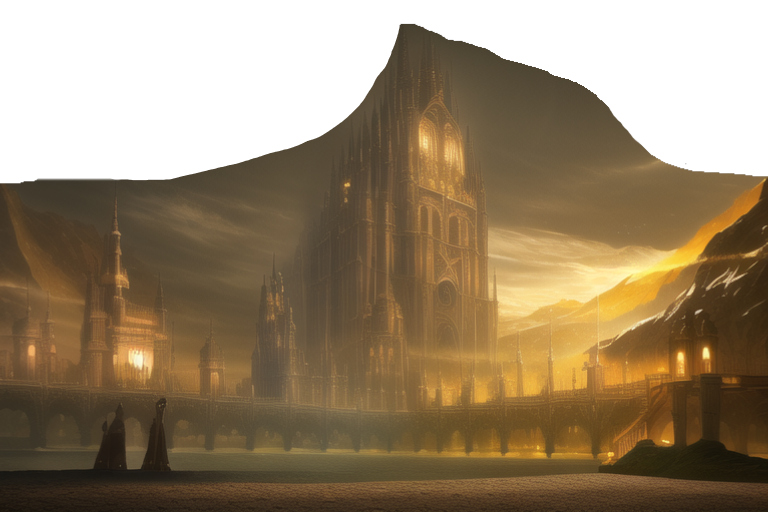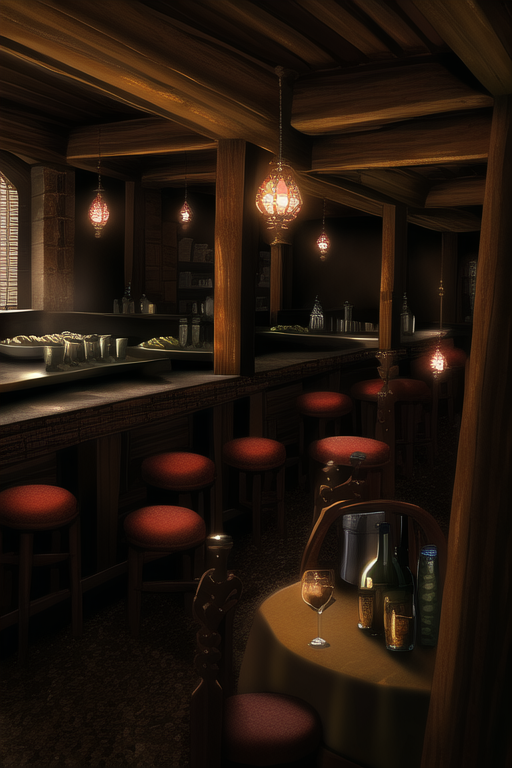
The Revised Bard Subclasses
Introduction
Aim
Bard is, in my option, one of if not the strongest class in DnD 5e. The Subclasses do contibute to this power considerably though some of the are noticable weaker than others, ie whispers and valor. This is just to bring each subclass up to the level of Eloquence and Lore to make every subclass worth playing.
Design
The changes that have been made will most likely be reworks and buffs with a few optional features since I normally play in heavily homebrewed campaigns. These abilities may be a little powerful for lower power level games. A lot of this is done in the form of a table with people who like optimization and giving those people more options to consider when creating a viable build. Also since I am British, I felt the need to translate all the subclasses into proper English.
Key
The following table is a key for the subclass feature Section
| Symbol | Meaning |
|---|---|
| * | New |
| ! | Rework |
| ^ | Buff |
Document Layout
The subclasses are all listed alphabetically. In the features table for each subclass, the features may be prefixed with one of the symbols above. If it isn't, no change has been made to the ability.
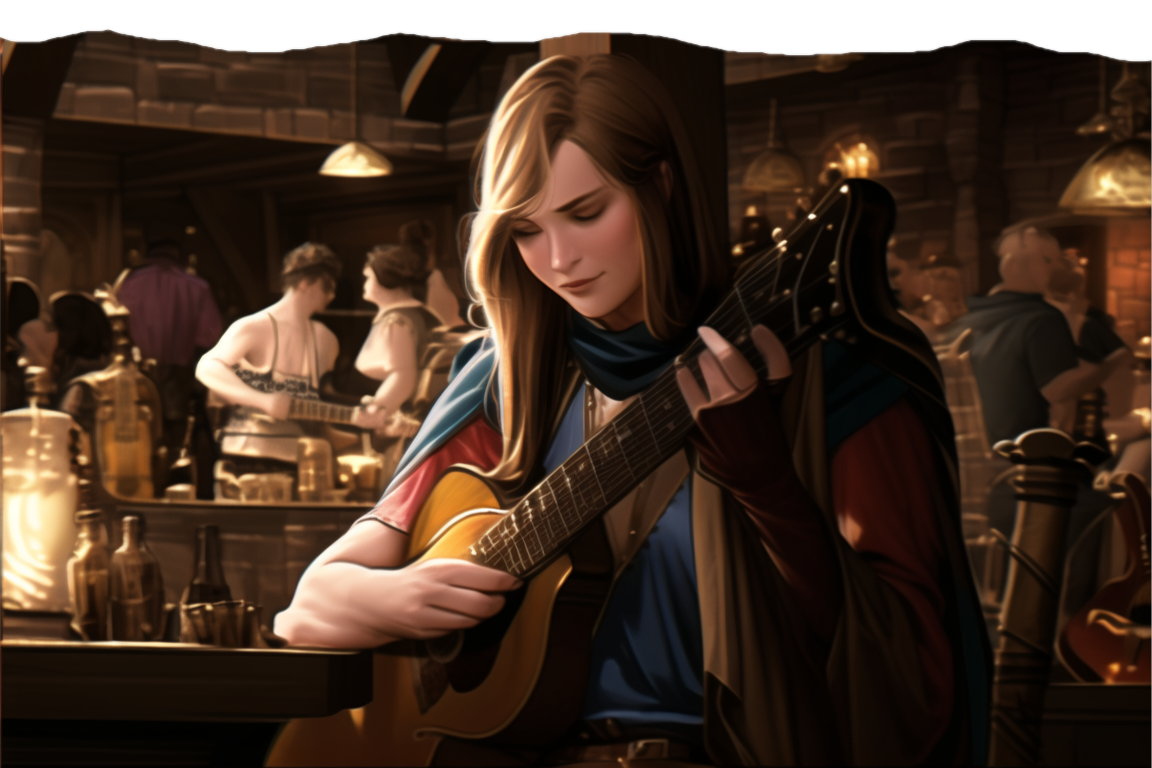
College of Creation
Bards believe the cosmos is a work of art—the creation of the first dragons and gods. That creative work included harmonies that continue to resound through existence today, a power known as the Song of Creation. The bards of the College of Creation draw on that primeval song through dance, music, and poetry, and their teachers share this lesson: “Before the sun and the moon, there was the Song, and its music awoke the first dawn. Its melodies so delighted the stones and trees that some of them gained a voice of their own. And now they sing too. Learn the Song, students, and you too can teach the mountains to sing and dance.”
Dwarves and gnomes often encourage their bards to become students of the Song of Creation. And among dragonborn, the Song of Creation is revered, for legends portray Bahamut and Tiamat—the greatest of dragons—as two of the song’s first singers.
College of Creation Features
| Bard Level | Features |
|---|---|
| 3rd | (^)Mote of Potential, Performance of Creation |
| 6th | (^)Animating Performance |
| 14th | (^)Creative Crescendo |
Mote of Potential
3rd-level College of Creation feature
Whenever you give a creature a Bardic Inspiration die, you can utter a note from the Song of Creation to create a Tiny mote of potential, which orbits within 5 feet of that creature. The mote is intangible and invulnerable, and it lasts until the Bardic Inspiration die is lost. The mote looks like a musical note, a star, a flower, or another symbol of art or life that you choose.
When the creature uses the Bardic Inspiration die, the mote provides an additional effect based on whether the die benefits an ability check, an attack roll, or a saving throw, as detailed below:
Mote of Ingenuity. When the creature rolls the Bardic Inspiration die to add it to an ability check, the creature can roll the Bardic Inspiration die again and choose which roll to use, as the mote pops and emits colourful, harmless sparks for a moment.
Mote of Destruction. Immediately after the creature rolls the Bardic Inspiration die to add it to an attack roll against a target, the mote thunderously shatters. The target and each creature of your choice that you can see within 5 feet of it must succeed on a Constitution saving throw against your spell save DC or take thunder damage equal to double the number rolled on the Bardic Inspiration die.
Mote of Protection. Immediately after the creature rolls the Bardic Inspiration die and adds it to a saving throw, the mote vanishes with the sound of soft music, causing the creature to gain temporary hit points equal to the number rolled on the Bardic Inspiration die plus your Charisma modifier (minimum of 1 temporary hit point).
Performance of Creation
3rd-level College of Creation feature
As an action, you can channel the magic of the Song of Creation to create one nonmagical item of your choice in an unoccupied space within 10 feet of you. The item must appear on a surface or in a liquid that can support it. The gp value of the item can’t be more than 20 times your bard level, and the item must be Medium or smaller. The item glimmers softly, and a creature can faintly hear music when touching it. The created item disappears after a number of hours equal to your proficiency bonus. For examples of items you can create, see the equipment chapter of the Player’s Handbook.
Once you create an item with this feature, you can’t do so again until you finish a long rest, unless you expend a spell slot of 2nd level or higher to use this feature again. You can have only one item created by this feature at a time; if you use this action and already have an item from this feature, the first one immediately vanishes.
The size of the item you can create with this feature increases by one size category when you reach 6th level (Large) and 14th level (Huge).
Animating Performance
6th-level College of Creation feature
As an action, you can target a Large or smaller nonmagical item you can see within 30 feet of you and animate it. The animate item uses the Dancing Item stat block, which uses your proficiency bonus (PB) and your Bardic Inspiration Dice (BID) in place of some of its statistics. The item is friendly to you and your companions and obeys your commands. It lives for 1 hour, until it is reduced to 0 hit points, or until you die.
In combat, the item shares your initiative count, but it takes its turn immediately after yours. It can move and use its reaction on its own, but the only action it takes on its turn is the Dodge action, unless you take a bonus action on your turn to command it to take another action. That action can be one in its stat block or some other action. If you are incapacitated, the item can take any action of its choice, not just Dodge.
When you use your Bardic Inspiration feature, you can command the item as part of the same bonus action you use for Bardic Inspiration. Once you animate an item with this feature, you can’t do so again until you finish a long rest, unless you expend a spell slot of 2nd level or higher to use this feature again. You can have only one item animated by this feature at a time; if you use this action and already have a dancing item from this feature, the first one immediately becomes inanimate.
DANCING ITEM
Large or smaller construct
- Armor Class 14 + PB (natural armour)
- Hit Points 10 + five times your bard level
- Speed 30 ft., fly 30 ft. (hover)
STR DEX CON INT WIS CHA 18 (+4) 14 (+2) 16 (+3) 4 (-3) 10 (+0) 6 (-2)
- Damage Resistances necrotic, force
- Damage Immunities poison, psychic
- Condition Immunities charmed, exhaustion, poisoned, fightened
- Senses darkvision 60 ft., passive Perception 10
- Languages understands the languages you speak
- Challenge — Proficiency Bonus (PB) equals your bonus
Immutable Form. The item is immune to any spell or effect that would alter its form.
Irrepressible Dance. When any creature starts its turn within 10 feet of the item, the item can increase or decrease (your choice) the walking speed of that creature by 10 feet until the end of the turn, provided the item isn’t incapacitated.
Actions
Force-Empowered Slam. Melee Weapon Attack: your spell attack modifier to hit, Reach 5 ft., one target you can see. Hit: 2BID + PB force damage.
Creative Crescendo
14th-level College of Creation feature
When you use your Performance of Creation feature, you can create more than one item at once. The number of items equals your Charisma modifier (minimum of two items). If you create an item that would exceed that number, you choose which of the previously created items disappears. Only one of these items can be of the maximum size you can create; the rest must be medium or smaller.
You are no longer limited by gp value when creating items with Performance of Creation.
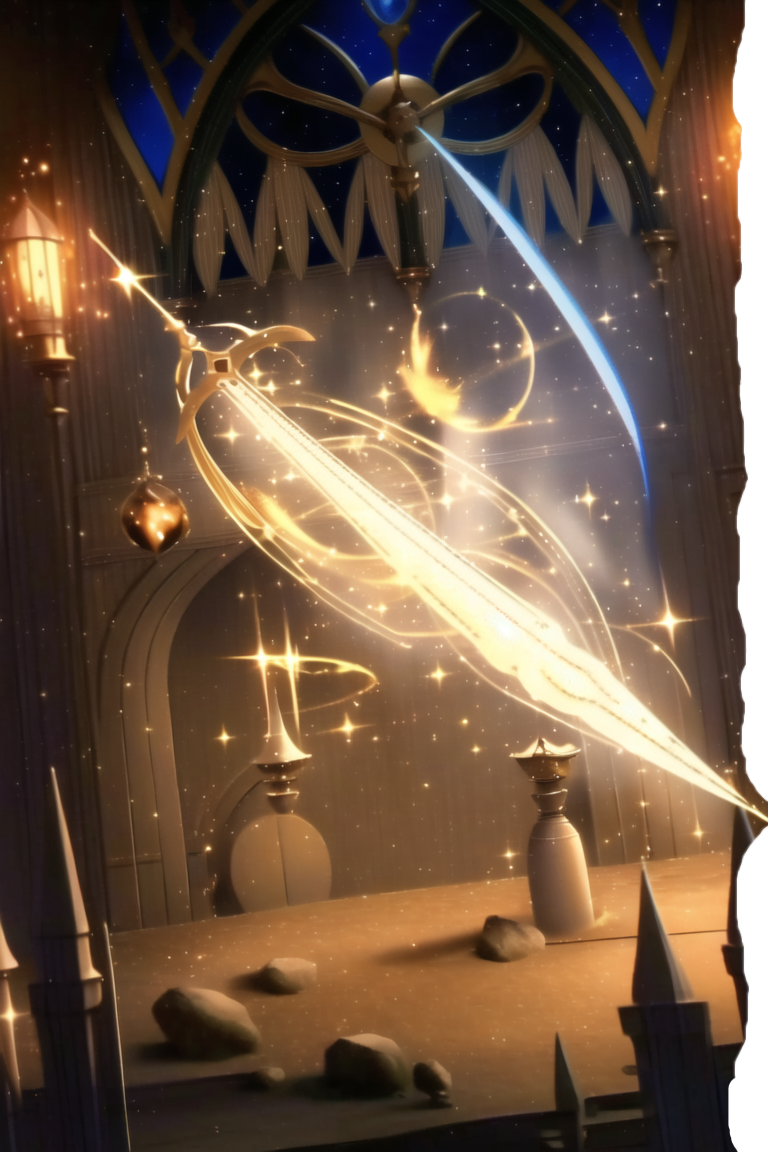
College of Eloquence
Adherents of the College of Eloquence master the art of oratory. Persuasion is regarded as a high art, and a well-reasoned, well-spoken argument often proves more persuasive than facts. These bards wield a blend of logic and theatrical wordplay, winning over skeptics and detractors with logical arguments and plucking at heartstrings to appeal to the emotions of audiences.
College of Eloquence Features
| Bard Level | Features |
|---|---|
| 3rd | Silver Tongue, Unsettling Words |
| 6th | Unfailing Inspiration, Universal Speech |
| 14th | (^)Infectious Inspiration |
Silver Tongue
3rd-level College of Eloquence feature
You are a master at saying the right thing at the right time. When you make a Charisma (Persuasion) or Charisma (Deception) check, you can treat a d20 roll of 9 or lower as a 10.
Unsettling Words
3rd-level College of Eloquence feature
You can spin words laced with magic that unsettle a creature and cause it to doubt itself. As a bonus action, you can expend one use of your Bardic Inspiration and choose one creature you can see within 60 feet of you. Roll the Bardic Inspiration die. The creature must subtract the number rolled from the next saving throw it makes before the start of your next turn.
Unfailing Inspiration
6th-level College of Eloquence feature
Your inspiring words are so persuasive that others feel driven to succeed. When a creature adds one of your Bardic Inspiration dice to its ability check, attack roll, or saving throw and the roll fails, the creature can keep the Bardic Inspiration die.
Universal Speech
6th-level College of Eloquence feature
You have gained the ability to make your speech intelligible to any creature. As an action, choose one or more creatures within 60 feet of you, up to a number equal to your Charisma modifier (minimum of one creature). The chosen creatures can magically understand you, regardless of the language you speak, for 1 hour.
Once you use this feature, you can’t use it again until you finish a long rest, unless you expend a spell slot to use it again.
Infectious Inspiration
14th-level College of Eloquence feature
When you successfully inspire someone, the power of your eloquence can now spread to someone else. When a creature within 60 feet of you adds one of your Bardic Inspiration dice to its ability check, attack roll, or saving throw and the roll succeeds, you can use your reaction to encourage a different creature that can hear you within 60 feet of you, giving it a Bardic Inspiration die without expending any of your Bardic Inspiration uses.
You can use this reaction a number of times equal to your Charisma modifier (minimum of once), and you regain all expended uses when you finish a long rest.
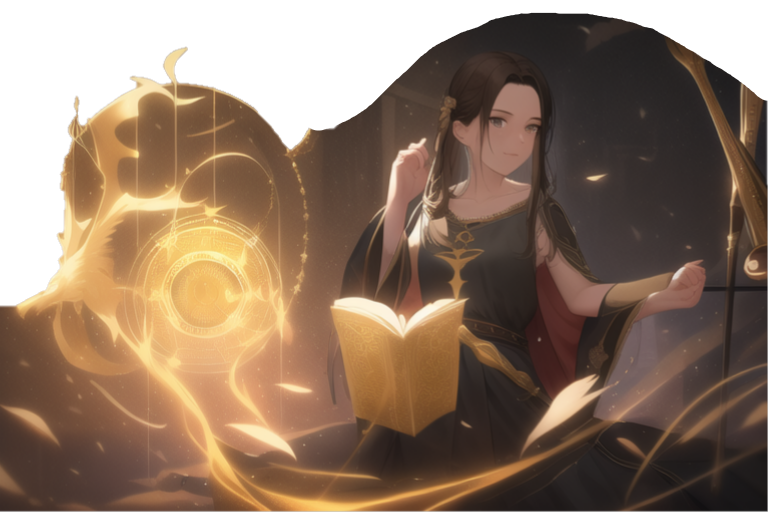
College of Glamour
The College of Glamour is the home of bards who mastered their craft in the vibrant realm of the Feywild or under the tutelage of someone who dwelled there. Tutored by satyrs, eladrin, and other fey, these bards learn to use their magic to delight and captivate others.
The bards of this college are regarded with a mixture of awe and fear. Their performances are the stuff of legend. These bards are so eloquent that a speech or song that one of them performs can cause captors to release the bard unharmed and can lull a furious dragon into complacency. The same magic that allows them to quell beasts can also bend minds. Villainous bards of this college can leech off a community for weeks, misusing their magic to turn their hosts into thralls. Heroic bards of this college instead use this power to gladden the downtrodden and undermine oppressors.
College of Glamour Features
| Bard Level | Features |
|---|---|
| 3rd | (!)Mantle of Inspiration, Enthralling Performance |
| 6th | (!)Mantle of Majesty |
| 14th | (!)Unbreakable Majesty |
This subclass has been basicly completely reworked
Mantle of Inspiration
3rd-level College of Glamour feature
You gain the ability to weave a song of fey magic that imbues your allies with vigour and speed.
As a bonus action, you can use your Bardic Inspiration to invoke the magic of the fey wild and grand yourself wonderous appearance. This wonderous appearance lasts for 1 minute, until you fall unconscious, or until you end it (no action required by you). While your wonderous appearance persist you gain the following benefits:
- When you invoke this appearance, choose a number of creatures you can see and that can hear you within 60 feet of you, up to a number equal to your Charisma modifier (minimum of one). Each of them gains 5 temporary hit points. Each creature that gains these hit points can immediately use its reaction to move up to its speed, without provoking opportunity attacks.
- You, and creatures of your choice that are within 10 feet of you have their movement speed increases by 5 feet.
- As a bonus action on each of your turns, you can grant a creature that you can see within 60 feet of you 5 temporary hit points.
The temporary hit points granted from this feature last for the duration of your Mantle and the number of temporary hit points, and the movement speed increase increases when you reach certain levels in this class, increasing to 10 at 5th level, 15 at 10th level, 20 at 15th level, and 25 at 20th level.
Enthralling Performance
3rd-level College of Glamour feature
You can charge your performance with seductive, fey magic.
If you perform for at least 1 minute, you can attempt to inspire wonder in your audience by singing, reciting a poem, or dancing. At the end of the performance, choose a number of humanoids within 60 feet of you who watched and listened to all of it, up to a number equal to your Charisma modifier (minimum of one). Each target must succeed on a Wisdom saving throw against your spell save DC or be charmed by you. While charmed in this way, the target idolizes you, it speaks glowingly of you to anyone who talks to it, and it hinders anyone who opposes you, although it avoids violence unless it was already inclined to fight on your behalf. This effect ends on a target after 1 hour, or until you or your allies do anything harmful to it.
Regardless if target succeeds on its saving throw or not, it has no hint that you tried to charm it.
Once you use this feature, you can’t use it again until you finish a short or long rest.
Mantle of Majesty
6th-level College of Glamour feature
You gain the ability to cloak yourself in a fey magic that makes others want to serve you. While transformed via your Mantel of Inspiration feature, you can cast the command spell, without expending a spell slot, as an action or bonus action on each of your turns.
Any creature charmed by you automatically fails its saving throw against the command you cast with this feature.
Unbreakable Majesty
14th-level College of Glamour feature
Your appearance permanently gains an otherworldly aspect that makes you look more lovely and fierce.
In addition, while you are transformed via your Mantle of Inspiration feature, you gain the following additional benefits:
- Whenever a creature that you can see makes an attack against you, it has disadvantage on any saving throw it makes against your spells or abilities until the end of your next turn.
- Whenever a creature tries to attack you for the first time on a turn, it must make a Charisma saving throw against your spell save DC. On a failed save, it cannot attack you until the start of its next turn, and it must choose a new target for the triggering attack, else it is wasted.
College of Lore
Bards of the College of Lore know something about most things, collecting bits of knowledge from sources as diverse as scholarly tomes and peasant tales. Whether singing folk ballads in taverns or elaborate compositions in royal courts, these bards use their gifts to hold audiences spellbound. When the applause dies down, the audience members might find themselves questioning everything they held to be true, from their faith in the priesthood of the local temple to their loyalty to the king.
The loyalty of these bards lies in the pursuit of beauty and truth, not in fealty to a monarch or following the tenets of a deity. A noble who keeps such a bard as a herald or advisor knows that the bard would rather be honest than politic.
The college’s members gather in libraries and sometimes in actual colleges, complete with classrooms and dormitories, to share their lore with one another. They also meet at festivals or affairs of state, where they can expose corruption, unravel lies, and poke fun at self-important figures of authority.
College of Lore Features
| Bard Level | Features |
|---|---|
| 3rd | (^)Bonus Proficiencies, Cutting Words |
| 6th | Additional Magical Secrets |
| 14th | Peerless Skill |
Bonus Proficiencies
3rd-level College of Lore feature
You gain proficiency with three skills of your choice. Your proficiency bonus is doubled for any ability check you make that uses the chosen proficiency.
Cutting Words
3rd-level College of Lore feature
You learn how to use your wit to distract, confuse, and otherwise sap the confidence and competence of others. When a creature that you can see within 60 feet of you makes an attack roll, an ability check, or a damage roll, you can use your reaction to expend one of your uses of Bardic Inspiration, rolling a Bardic Inspiration die and subtracting the number rolled from the creature’s roll. You can choose to use this feature after the creature makes its roll, but before the DM determines whether the attack roll or ability check succeeds or fails, or before the creature deals its damage. The creature is immune if it can’t hear you.
Additional Magical Secrets
6th-level College of Lore feature
You learn three spells of your choice from any class. A spell you choose must be of a level you can cast, as shown on the Bard table, or a cantrip. The chosen spells count as bard spells for you but don’t count against the number of bard spells you know.
Peerless Skill
14th-level College of Lore feature
When you make an ability check, you can expend one use of Bardic Inspiration. Roll a Bardic Inspiration die and add the number rolled to your ability check. You can choose to do so after you roll the die for the ability check, but before the DM tells you whether you succeed or fail.
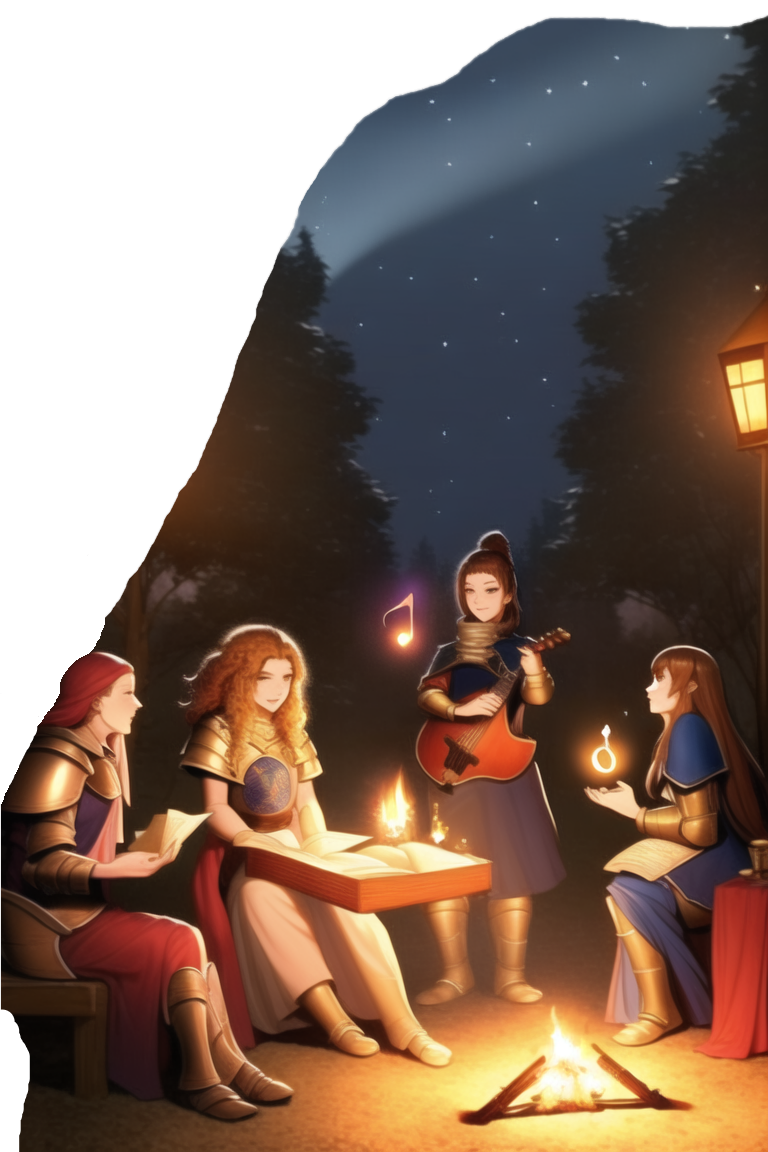
College of Spirits
Bards of the College of Spirits seek tales with inherent power—be they legends, histories, or fictions— and bring their subjects to life. Using occult trappings, these bards conjure spiritual embodiments of powerful forces to change the world once more. Such spirits are capricious, though, and what a bard summons isn’t always entirely under their control.
College of Spirits Features
| Bard Level | Features |
|---|---|
| 3rd | Guiding Whispers, Spiritual Focus, (^)Tales from Beyond |
| 6th | (!)Spirit Session, (*)Quicker Tales |
| 14th | (^)Mystical Connection |
Guiding Whispers
3rd-level College of Spirits feature
You can reach out to spirits to guide you and others. You learn the guidance cantrip, which doesn’t count against the number of bard cantrips you know. For you, it has a range of 60 feet when you cast it.
Cutting Words
3rd-level College of Spirits feature
You employ tools that aid you in channeling spirits, be they historical figures or fictional archetypes. You can use the following objects as a spellcasting focus for your bard spells: a candle, crystal ball, skull, spirit board, or tarokka deck.
When you cast a spell that deals damage or restores hit points through the Spiritual Focus, roll a d6, and you gain a bonus to one damage or healing roll of the spell equal to the number rolled.
Tales from Beyond
3rd-level College of Spirits feature
You reach out to spirits who tell their tales through you. While you are holding your Spiritual Focus, you can use a bonus action to expend one use of your Bardic Inspiration and roll on the Spirit Tales table using your Bardic Inspiration die to determine the tale the spirits direct you to tell. You retain the tale in mind until you bestow the tale’s effect or you finish a short or long rest.
You can use an action to choose one creature you can see within 30 feet of you (this can be you) to be the target of the tale’s effect. Once you do so, you can’t bestow the tale’s effect again until you roll it again.
You can retain only one of these tales in mind at a time. When you reach certain levels in this class you can retain multiple tales, 2 at 5th level, 3 at 10th level and 4 at 15th level. If the tale requires a saving throw, the DC equals your spell save DC.
| Bardic Insp. Die | Tale Told Through You |
|---|---|
| 1 | Tale of the Clever Animal. For the next 10 minutes, whenever the target makes an Intelligence, a Wisdom, or a Charisma check, the target can roll an extra die immediately after rolling the d20 and add the extra die’s number to the check. The extra die is the same type as your Bardic Inspiration die. |
| 2 | Tale of the Renowned Duelist. When you the target deals damage to a creature, The creature takes force damage equal to one rolls of your Bardic Inspiration die + your Charisma modifier. |
| 3 | Tale of the Beloved Friends. The target and another creature of its choice it can see within 5 feet of it gains temporary hit points equal to two rolls of your Bardic Inspiration die + your Charisma modifier. |
| 4 | Tale of the Runaway. The target can immediately use its reaction to teleport up to 30 feet to an unoccupied space it can see. When the target teleports, it can choose a number of creatures it can see within 30 feet of it up to your Charisma modifier (minimum of 0) to immediately use the same reaction. |
| 5 | Tale of the Avenger. For 1 minute, any creature that hits the target with a melee attack takes force damage equal to a roll of your Bardic Inspiration die. |
| 6 | Tale of the Traveler. The target gains temporary hit points equal to two rolls of your Bardic Inspiration die + your bard level. While it has these temporary hit points, the target’s walking speed increases by 10 feet and it gains a +1 bonus to its AC. |
| 7 | Tale of the Beguiler. The target must succeed on a Wisdom saving throw or take psychic damage equal to two rolls of your Bardic Inspiration die, and the target is incapacitated until the end of its next turn. |
| 8 | Tale of the Phantom. The target becomes invisible until the end of its next turn or until it hits a creature with an attack. If the target hits a creature with an attack during this invisibility, the creature it hits takes necrotic damage equal to a roll of your Bardic Inspiration die and is frightened of the target until the end of the frightened creature’s next turn. |
| Bardic Insp. Die | Tale Told Through You |
|---|---|
| 9 | Tale of the Brute. Each creature of the target’s choice it can see within 30 feet of it must make a Strength saving throw. On a failed save, a creature takes thunder damage equal to three rolls of your Bardic Inspiration die and is knocked prone. A creature that succeeds on its saving throw takes half as much damage and isn’t knocked prone. |
| 10 | Tale of the Dragon. The target spews fire from the mouth in a 30-foot cone. Each creature in that area must make a Dexterity saving throw, taking fire damage equal to four rolls of your Bardic Inspiration die on a failed save, or half as much damage on a successful one. |
| 11 | Tale of the Angel. The target regains hit points equal to two rolls of your Bardic Inspiration die + your Charisma modifier, and you end one condition from the following list affecting the target: blinded, deafened, paralyzed, petrified, or poisoned. |
| 12 | Tale of the Mind-Bender. You evoke an incomprehensible fable from an otherworldly being. The target must succeed on an Intelligence saving throw or take psychic damage equal to three rolls of your Bardic Inspiration die and be stunned until the end of its next turn. |
Spirit Session
6th-level College of Spirits feature
Spirits provide you with supernatural insights. You can conduct an hour-long ritual channeling spirits (which can be done during a short or long rest) using your Spiritual Focus. At the end of the ritual, you temporarily learn one spell of your choice from any class.
The spell you choose must be of a level equal to your proficiency bonus or less and the spell must be of a level you can cast. The chosen spell counts as a bard spell for you but doesn’t count against the number of bard spells you know.
Once you perform the ritual, you can’t do so again until you finish a long rest, and you know the chosen spell until you conduct this ritual again.
Quicker Tales
6th-level College of Spirits feature
With you tales from beyond trait, you can now give a tale as a bonus action on each of your turns. If you prepare a tale with your bonus action, you can also give that tale with the same bonus action.
Mystical Connection
14th-level College of Spirits feature
You now have the ability to nudge the spirits of Tales from Beyond toward certain tales. Whenever you roll on the Spirit Tales table, you can roll the die twice and choose which of the two effects to bestow. If you roll the same number on both dice, you can ignore the number and choose any effect on the table.
Additionally, once per short rest, when you run out of bardic inspiration dice, you can automatically share one last tale.

College of Swords
Bards of the College of Swords are called blades, and they entertain through daring feats of weapon prowess. Blades perform stunts such as sword swallowing, knife throwing and juggling, and mock combats. Though they use their weapons to entertain, they are also highly trained and skilled warriors in their own right.
Their talent with weapons inspires many blades to lead double lives. One blade might use a circus troupe as cover for nefarious deeds such as assassination, robbery, and blackmail. Other blades strike at the wicked, bringing justice to bear against the cruel and powerful. Most troupes are happy to accept a blade’s talent for the excitement it adds to a performance, but few entertainers fully trust a blade in their ranks.
Blades who abandon their lives as entertainers have often run into trouble that makes maintaining their secret activities impossible. A blade caught stealing or engaging in vigilante justice is too great a liability for most troupes. With their weapon skills and magic, these blades either take up work as enforcers for thieves’ guilds or strike out on their own as adventurers.
College of Swords Features
| Bard Level | Features |
|---|---|
| 3rd | (^)Bonus Proficiencies, (^)Fighting Style #(!)Blade Flourish |
| 6th | (^)Extra Attack *Inspiring Flourishes |
| 14th | (^)Master’s Flourish |
#Added more options
Bonus Proficiencies
3rd-level College of Swords feature
You gain proficiency with medium armour, shields and with one melee martial weapon of your choice.
If you’re proficient with a simple or martial melee weapon, you can use it as a spellcasting focus for your bard spells.
Fighting Style
3rd-level College of Swords feature
You adopt a style of fighting as your specialty. Choose one of the following options. You can’t take a Fighting Style option more than once, even if something in the game lets you choose again. At the end of a long rest, you can change your fighting style to another choice of this list.
- Dueling. When you are wielding a melee weapon in one hand and no other weapons, you gain a +2 bonus to damage rolls with that weapon.
- Great Weapon Fighting. When you roll a 1 or 2 on a damage die for an attack you make with a melee weapon that you are wielding with two hands, you can reroll the die and must use the new roll, even if the new roll is a 1 or a 2. The weapon must have the two-handed or versatile property for you to gain this benefit.
- Two-Weapon Fighting. When you engage in two-weapon fighting, you can add your ability modifier to the damage of the second attack.
Blade Flourish
3rd-level College of Swords feature You learn to perform impressive displays of martial prowess and speed.
Whenever you take the Attack action on your turn, your walking speed increases by 10 feet until the end of the turn. If a weapon attack that you make as part of this action hits a creature, you can use one of the Blade Flourish options that you know from the list bellow. You can use only one Blade Flourish option per turn. At 3rd level you learn 3 Blade Flourish options and then another at levels 6, 10, 14, and 18.
- Assailing Flourish. You can expend one use of your Bardic Inspiration to rapidly strike a target again. You can make a second attack with your weapon against the same or a different target. The second attack gain a bonus to hit equal to the number you rolled on the Bardic Inspiration die.
- Defensive Flourish. You can expend one use of your Bardic Inspiration to cause the weapon to deal extra damage to the target you hit. The damage equals the number you roll on the Bardic Inspiration die. You also add the number rolled to your AC until the start of your next turn.
- Exposing Flourish. You can expend one use of your Bardic Inspiration to open your target to a critical blow. Until the beginning of your next turn, attacks against that creature have an increased chance to critically hit, increasing the range by an amount equal to a roll of your bardic inspiration dice.
- Goading Flourish. You can expend one use of your Bardic Inspiration to cause the weapon to deal extra damage to the target you hit. The damage equals the number you roll on the Bardic Inspiration die. The target must make a Wisdom saving throw against your Bard spell save DC, on a failed save they have disadvantage on attacking targets other than you until the end of your next turn.
- Intimidating Flourish. You can expend one use of your Bardic Inspiration to cause the weapon to deal extra damage to the target you hit. The damage equals the number you roll on the Bardic Inspiration die. The target also needs to succeed on a Wisdom save against your Bard spell save DC or be frightened of you until the end of your next turn.
- Intrusive Flourish. You can expend one use of your Bardic Inspiration to cause the weapon to deal extra damage to the target you hit. The damage equals the number you roll on the Bardic Inspiration die. You can also push the target up to 5 feet away from you, plus a number of feet equal to the number you roll on that die (rounded to the nearest multiple of 5). You can then immediately use your reaction to move up to your walking speed to an unoccupied space within 5 feet of the target.
- Mobile Flourish. You can expend one use of your Bardic Inspiration to cause the weapon to deal extra damage to the target you hit. The damage equals the number you roll on the Bardic Inspiration die. You can immediately move anywhere within 15ft of the struck target without provoking opportunity attacks.
- Pinning Flourish. You can expend one use of your Bardic Inspiration to cause the weapon to deal extra damage to the target you hit. The damage equals the number you roll on the Bardic Inspiration die. The target must immediately succeed on a Dexterity save against your Bard spell save DC or have their speed reduced to zero until the start of your next turn.
- Slashing Flourish. You can expend one use of your Bardic Inspiration to cause the weapon to deal extra damage to the target you hit. Additionally you can choose another creature of your choice that you can see within 5 feet of you, that creature also takes the damage as if by the weapon and the extra damage. The damage equals the number you roll on the Bardic Inspiration die.
- Unbalancing Flourish. You can expend one use of your Bardic Inspiration to cause the weapon to deal extra damage to the target you hit. The damage equals the number you roll on the Bardic Inspiration die. The target also needs to immediately succeed on a Strength saving throw against your Bard spell save DC or be knocked prone.
- Violent Flourish. You can expend one use of your Bardic Inspiration to cause the weapon to deal extra damage to the target you hit. The extra damage equals three rolls of your Bardic Inspiration die.
Extra Attack
6th-level College of Swords feature
You can attack twice, instead of once, whenever you take the Attack action on your turn. Additionally, when you cast a spell that has a casting time of 1 action, you can cast it in place of one of your attacks granted this feature.
Inspiring Flourishes
6th-level College of Swords feature
When you expend a use of Bardic Inspiration on a Flourish, you may choose one creature other than yourself within 60 feet of you who can hear you. That creature gains one Bardic Inspiration die.
Master’s Flourish
14th-level College of Swords feature
Whenever you use a Blade Flourish option, you can roll a d6 and use it instead of expending a Bardic Inspiration die
Additionally, you use your Blade Flourish feature multiple times per turn, though each option can only be used once per turn.
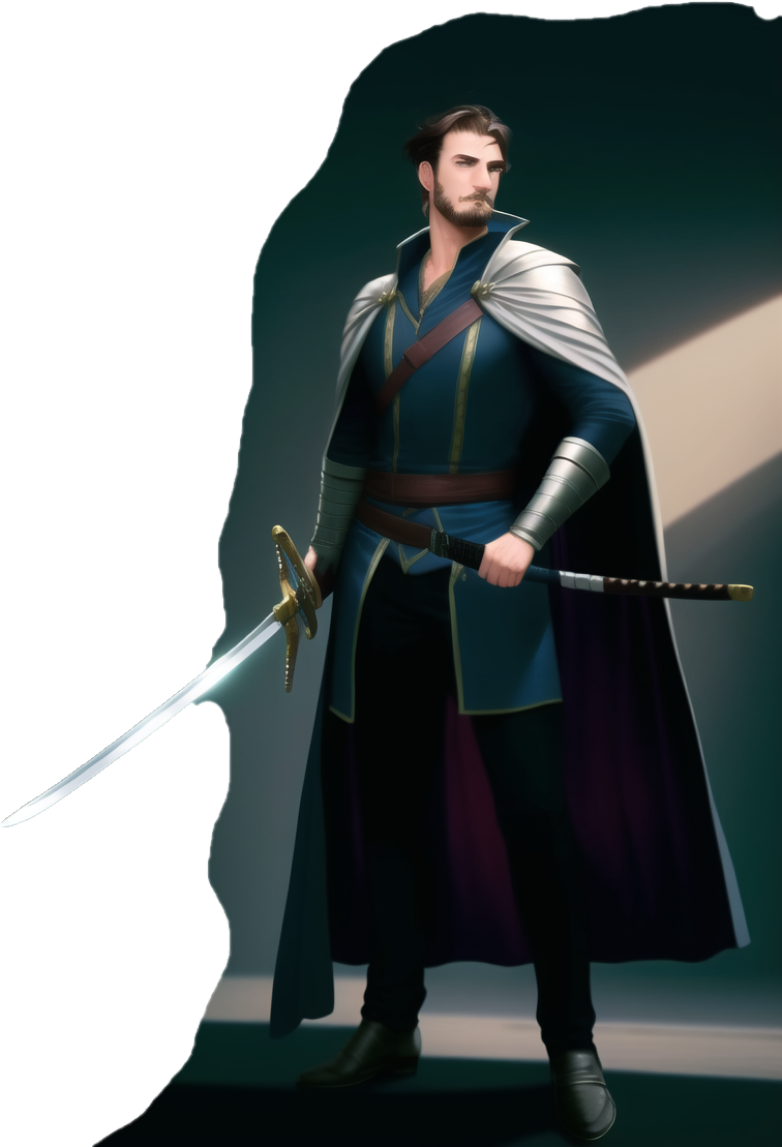
College of Valour
Bards of the College of Valour are daring skalds whose tales keep alive the memory of the great heroes of the past, and thereby inspire a new generation of heroes. These bards gather in mead halls or around great bonfires to sing the deeds of the mighty, both past and present. They travel the land to witness great events first-hand and to ensure that the memory of those events doesn’t pass from the world. With their songs, they inspire others to reach the same heights of accomplishment as the heroes of old.
College of Valour Features
| Bard Level | Features |
|---|---|
| 3rd | Bonus Proficiencies, (^)Combat Inspiration, *Ward of Valour |
| 6th | (^)Extra Attack *Persistent Inspiration |
| 14th | (!)Battle Magic |
Bonus Proficiencies
3rd-level College of Valour feature
You gain proficiency with medium armour, shields, and martial weapons.
Combat Inspiration
3rd-level College of Valour feature
You learn to inspire others in battle. A creature that has a Bardic Inspiration die from you can roll that die and add the number rolled to a weapon damage roll it just made. Alternatively, when an attack roll is made against the creature, it can use its reaction to roll the Bardic Inspiration die and add the number rolled to its AC until the start of its next turn, after knowing whether it hits or misses.
Ward of Valour
3rd-level College of Valour feature
At the start of each of your turns you gain 5 temporary hit points. These hit points increases when you reach certain levels in this class; to 10 temporary hit points at 6th level, and 15 temporary hit points at 14th level.
Extra Attack
6th-level College of Valour feature
You can attack twice, instead of once, whenever you take the Attack action on your turn. Additionally, when you cast a spell that has a casting time of 1 action, you can cast it in place of one of your attacks granted this feature.
Persistent Inspiration
6th-level College of Valour feature When a creature expends a bardic inspiration dice that is a d6 or larger, you can use your reaction to choose one creature that is within 30 feet of you who can hear you. That creature gains a new Bardic Inspiration Dice. The die of the creatures Bardic Inspiration is one size lower than the one that was expended.
Battle Magic
14th-level College of Valour feature
You have mastered the art of weaving spellcasting and weapon and the use of it in battle. While you have temporary hit points from your Ward of Valour feature, you gain the following benefits:
- You gain resistance to Bludgeoning, Piercing and Slashing damage.
- When you roll a Constitution saving throw to maintain concertation on a spell, you can treat any roll of 9 or lower as a 10.
- When you hit a creature with a weapon attack, that creature has disadvantage on saving throws against your spells until the start of your next turn.
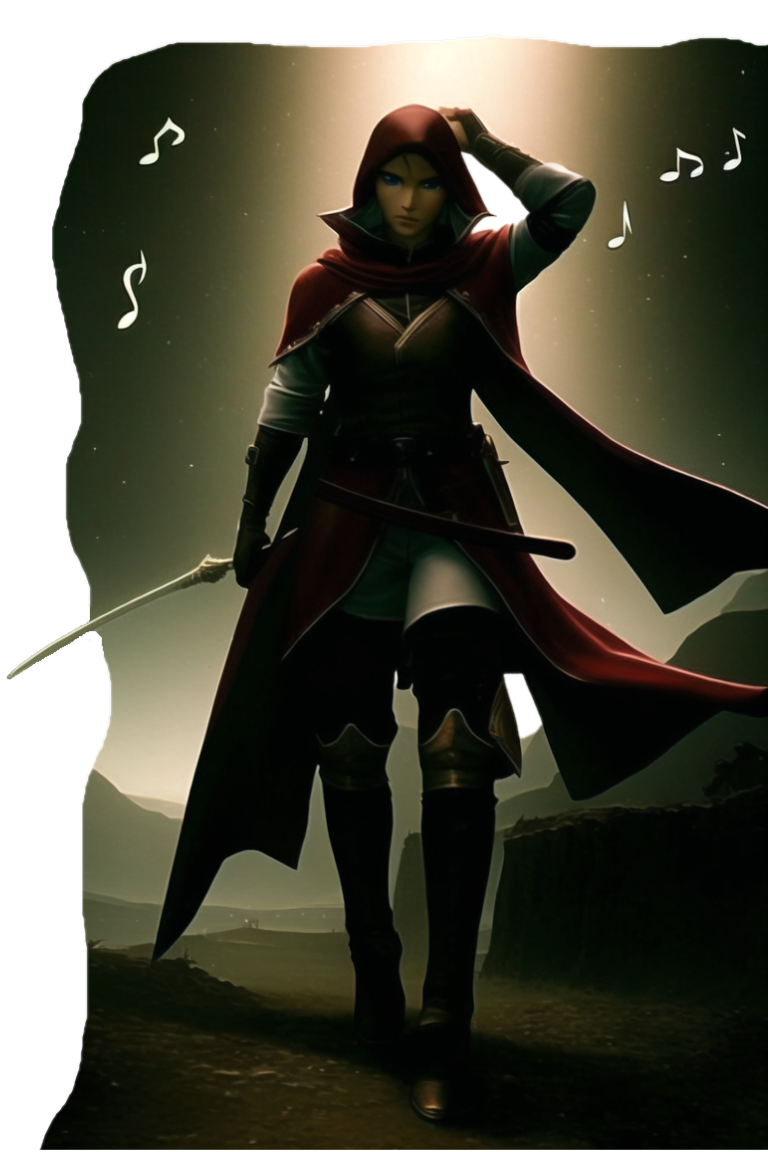
College of Whispers
Most folk are happy to welcome a bard into their midst. Bards of the College of Whispers use this to their advantage. They appear to be like other bards, sharing news, singing songs, and telling tales to the audiences they gather. In truth, the College of Whispers teaches its students that they are wolves among sheep. These bards use their knowledge and magic to uncover secrets and turn them against others through extortion and threats.
Many other bards hate the College of Whispers, viewing it as a parasite that uses a bard’s reputation to acquire wealth and power. For this reason, members of this college rarely reveal their true nature. They typically claim to follow some other college, or they keep their actual calling secret in order to infiltrate and exploit royal courts and other settings of power.
College of Whispers Features
| Bard Level | Features |
|---|---|
| 3rd | *Blank Slate (^)Psychic Blades, (^)Words of Terror |
| 6th | (!^)Words of Terror *Persistent Inspiration |
| 14th | (^)Shadow Lore |
Blank Slate
3rd-level College of Whispers feature
You gain proficiency with the disguise kit and the Charisma (Deception) skill. Your proficiency bonus is doubled for any ability check you make that uses either proficiency.
In addition, when you are subject to an effect that prevents you from lying but allows you to make a saving throw such as zone of truth, when you succeed the saving throw, the creature regards you as having failed the save and if you fail the saving throw, you can choose to succeed but the creature knows you succeeded the saving throw.
Psychic Blades
3rd-level College of Whispers feature
You gain the ability to make your attacks magically toxic to a creature’s mind.
When you hit a creature with an attack, you can expend one use of your Bardic Inspiration to deal an extra 2d6 psychic damage to that target. You can do so only once per turn. When you deal this damage, you may take the hide action as a free action before the end of your turn.
The psychic damage increases when you reach certain levels in this class, increasing to 4d6 at 5th level, 6d6 at 10th level, and 8d6 at 15th level.
Words of Terror
3rd-level College of Whispers feature
You learn to infuse innocent-seeming words with an insidious magic that can inspire terror.
If you speak to a humanoid for at least 1 minute, you can attempt to seed paranoia in its mind. At the end of the conversation, the target must succeed on a Wisdom saving throw against your spell save DC or be frightened of you or another creature of your choice. The target is frightened in this way for 8 hours, until it is attacked or damaged, or until it witnesses its allies being attacked or damaged. While the target is frightened in this way, the creature that it is frightened of has advantage on charisma checks with the target.
If the target succeeds on its saving throw, the target has no hint that you tried to frighten it.
Once you use this feature, you can’t use it again until you finish a short or long rest.
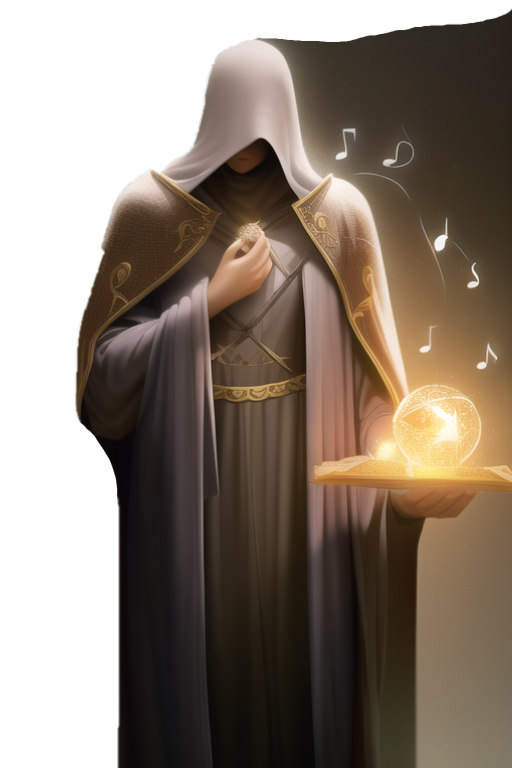
Mantle of Whispers
6th-level College of Whispers feature
You gain the ability to adopt a humanoid’s persona. When a humanoid dies within 120 feet of you, you can magically capture its shadow. You can have a number of shadows equal to your proficiency bonus. If you try to capture a shadow while you are at your limit, you can release a shadow of your choice and capture the new one.
You can use one of your shadows as an action. When you do so it magically transforming into a disguise that appears on you. You now look like the dead person, but healthy and alive. This disguise lasts for 1 hour or until you end it as a bonus action, at which point the shadow returns to you for use at a later time. At any point, while you are disguised, you can expend a spell slot of 1st level or higher to extend the duration by 1 hour per spell slot level expended.
While you’re in the disguise, you gain access to all information that the humanoid would freely share with a casual acquaintance. Such information includes general details on its background and personal life, but doesn’t include secrets. The information is enough that you can pass yourself off as the person by drawing on its memories.
The disguise is not illusory, and holds out to physical inspection, although creatures with truesight can see through the disguise. You also can mimic the voice of the disguise, and you temporarily gain the skill proficiencies and languages of your disguise while you remain so.
Another creature can see through this disguise by succeeding on a Wisdom (Insight) check contested by your Charisma (Deception) check. You gain a +5 bonus to your check.
Once you use this feature to assume someone's form, you cannot do so again until you finish a long rest.
Shadow Lore
14th-level College of Whispers feature
You gain the ability to weave dark magic into your words and tap into a creature’s deepest fears.
As an action, you magically whisper a phrase that only one creature of your choice within 30 feet of you can hear. The target must make a Wisdom saving throw against your spell save DC. On a successful saving throw, your whisper sounds like unintelligible mumbling and has no effect. If you use this ability on a creature while it charmed from this feature, it automatically fails the saving throw.
On a failed saving throw, the target is charmed by you for the next 24 hours or until you or your allies attack it, damage it, or force it to make a saving throw. It interprets the whispers as a description of its most mortifying secret. You gain no knowledge of this secret, but the target is convinced you know it.
The charmed creature obeys your commands for fear that you will reveal its secret. It won’t risk its life for you or fight for you, unless it was already inclined to do so. It grants you favours and gifts it would offer to a close friend.
When the effect ends, the creature has no understanding of why it held you in such fear.
Once you use this feature, you can’t use it again until you finish a long rest.
